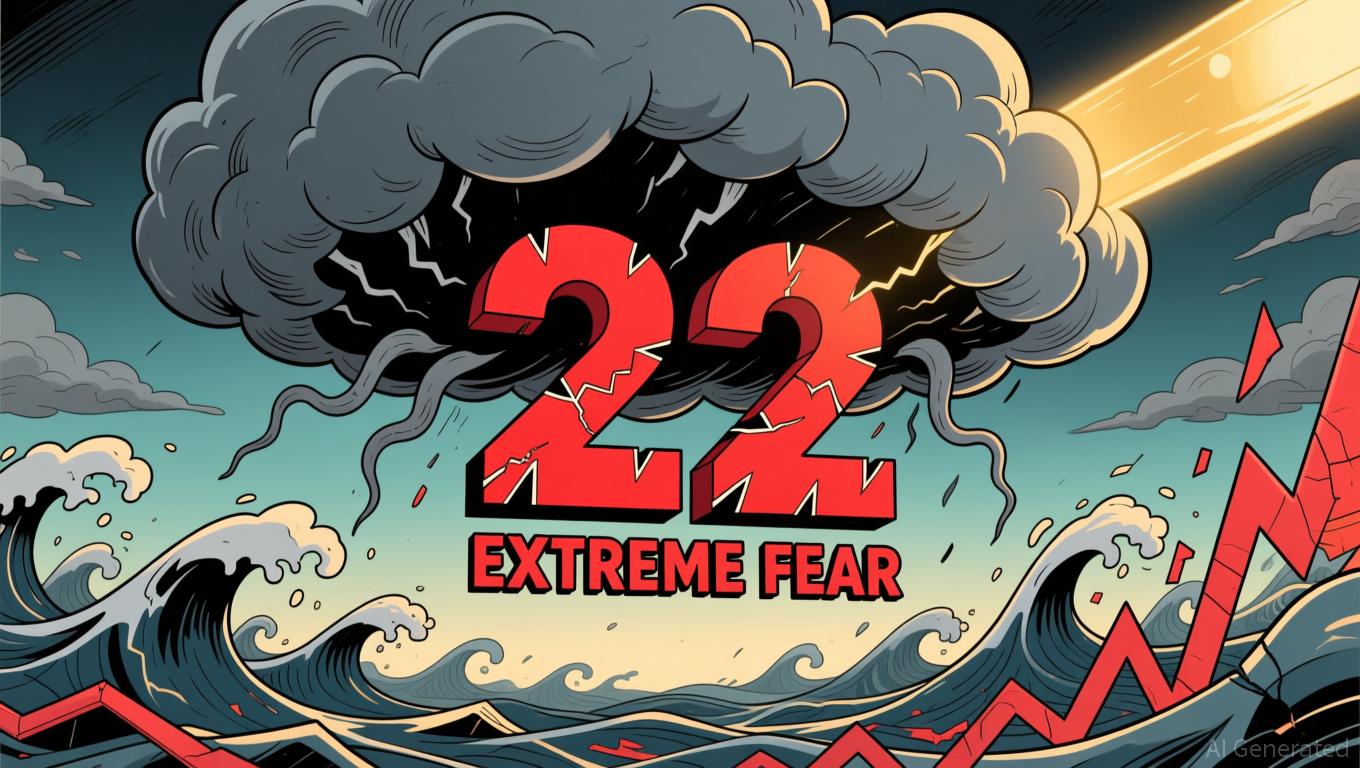Bitcoin News Update: Aave's ETHLend 2.0 Disrupts DeFi's Dependence on Wrapped Tokens by Introducing Native Bitcoin
- Aave founder Stani Kulechov announced ETHLend 2.0's 2026 relaunch using native Bitcoin as collateral, diverging from wrapped tokens. - The hybrid P2P-liquidity pool model aims to enhance DeFi efficiency while reducing synthetic asset reliance through cross-chain BTC integration. - This revival aligns with growing institutional demand for non-wrapped BTC and could restore utility for the legacy LEND token. - Despite bearish market conditions, the move signals confidence in Bitcoin's foundational role for
Stani Kulechov, the founder of Aave, has announced that ETHLend—the project’s original peer-to-peer lending platform—will be revived in 2026 with a major update:

ETHLend, which became known as
The DeFi sector has responded with both nostalgia and intrigue. Old screenshots of ETHLend’s 2018 interface have resurfaced on social media, showcasing the project’s journey from a small-scale P2P initiative to a major DeFi ecosystem.
Although the focus is on ETHLend’s return, the overall crypto market remains in a downturn.
This revival highlights Aave’s intention to move beyond just liquidity pools and broaden its product lineup. While it’s still uncertain whether ETHLend 2.0 will be a standalone platform or integrated with Aave, the renewed focus on P2P lending suggests it will complement Aave’s current offerings. This could appeal to users who prefer direct counterparty relationships, a need not fully met by automated market makers.
As DeFi continues to develop, bringing back ETHLend with native Bitcoin support puts Aave in a strong position to attract both long-time users and new institutional participants. With 2026 approaching, the industry will be watching closely to see how this hybrid approach balances fresh innovation with the efficiency that made Aave a leader in the space.
Disclaimer: The content of this article solely reflects the author's opinion and does not represent the platform in any capacity. This article is not intended to serve as a reference for making investment decisions.
You may also like
Switzerland Postpones Crypto Tax Data Exchange to Meet Technological and International Requirements
- Switzerland delays crypto tax data sharing until 2027, aligning with global regulatory reevaluations amid evolving tech and market dynamics. - SGS acquires Australia's Information Quality to boost digital revenue, reflecting Swiss firms' expansion into tech-driven compliance solutions. - Canada's Alberta oil sands policy shift highlights governments prioritizing economic growth over strict climate regulations, mirroring Switzerland's approach. - BridgeBio's precision medicine and Aires' EMF solutions dem

Switzerland's Focus on Privacy Conflicts with International Efforts for Crypto Taxation
- Switzerland delays crypto tax data sharing with international partners until 2027, contrasting with global regulatory efforts to close offshore loopholes. - The U.S. advances implementation of the OECD's CARF framework, aiming to automate reporting on foreign crypto accounts by 2029. - CARF requires foreign exchanges to report U.S. account details, mirroring traditional tax standards and targeting crypto tax evasion. - Switzerland's privacy-focused stance highlights tensions between financial confidentia

Zcash News Update: Reliance Shifts Entirely to Zcash, Citing Privacy and Regulatory Alignment
- Reliance Global Group, a Nasdaq-listed fintech firm, shifted its entire crypto portfolio to Zcash (ZEC), divesting Bitcoin , Ethereum , and other major coins. - The strategic pivot, announced November 25, prioritizes Zcash's privacy-focused zk-SNARKs technology for institutional compliance and selective data disclosure. - Zcash's 1,200% 90-day price surge and Grayscale's ETF filing highlight growing institutional interest in privacy-centric assets. - The move reflects broader crypto industry trends towar
Bitcoin News Update: Bitcoin Fear Index Drops to 22 While Investors Look for Signs of Market Rebound
- Bitcoin Fear & Greed Index rose to 22 from 20, indicating slight easing of extreme fear but persistent bearish sentiment. - Bitcoin stabilized near $87,000 after hitting $80,553, yet remains below key resistance levels amid $3.5B ETF outflows. - Structural factors like leverage and liquidations drive selloffs, with ETF redemptions correlating to 3.4% price drops per $1B outflow. - Analysts note oversold technical indicators and waning retail capitulation as potential inflection points for near-term rebou
